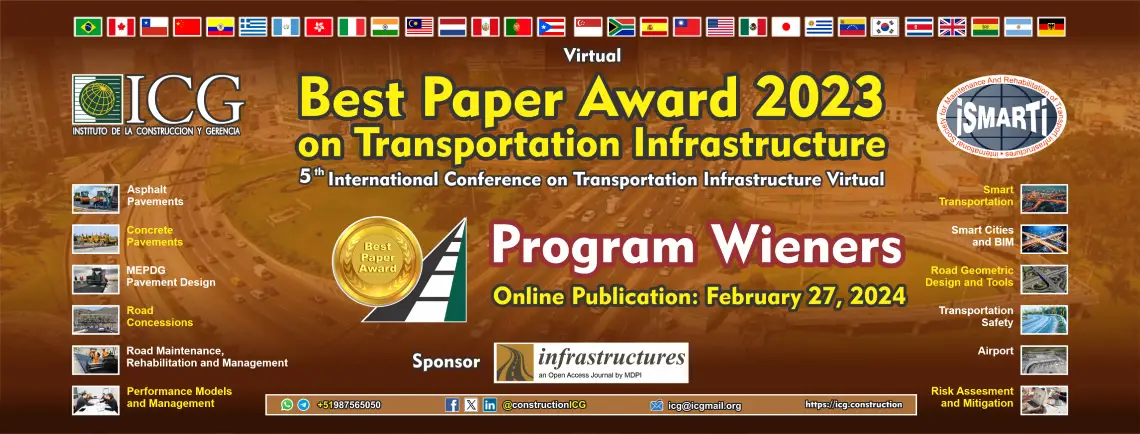
 |
 |
 |
 |
 |
 |
|---|
 |
Comparing the performance of historical and regular stone pavement structures through Finite Element Method Authors: Nicholas Fiorentini, Jiandong Huang, Giacomo Cuciniello, Pietro Leandri and Massimo Losa |
||||||
|---|---|---|---|---|---|---|---|
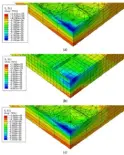 |
Abstract | View Paper | |||||
| Stone pavement structures (SPS), also known as stone roads or stone-paved roads, are road pavements constructed using stones as the primary surface material. Different types of SPS exist; historically, irregular-shaped stones with downward protrusions have been often exploited since regular-shaped stones were difficult to be produced. More recently, regular cuboid stones can be also used. Accordingly, in new construction and renovations of SPS, pavement designers must take an essential decision concerning the adoption of historical or regular stones. | |||||||
 |
Nicholas Fiorentini | ||||||
| Nicholas Fiorentini, The research of Nicholas involves the prediction and mapping of infrastructure deficiencies using Machine Learning, Geographic Information Systems, and Non-Destructive High-Performance Techniques, such as InSAR, FWD, and GPR. Also, Nicholas is interested in road safety analyses & modeling, crash frequency & crash severity prediction, and pavement management. |
|||||||
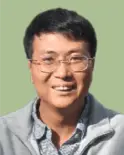 |
Jiandong Huang | ||||||
| Professor Jiandong Huang earned his Bachelor of Science degree from Fudan University, Shanghai and went to the United States through the CUSBEA* programme to pursue his doctoral study in transcriptional regulation during fruit fly embryonic pattern formation. He earned his PhD degree from the University of California, Los Angeles. Thereafter, Professor Huang received his postdoctoral training in mouse genetics at National Cancer Institute, National Institutes of Health in the US. During this period, Professor Huang was the first to report that the two major intracellular transportation systems of mammalian cells, the | |||||||
 |
Giacomo Cuciniello | ||||||
| Giacomo Cuciniello currently works at the Nottingham Transportation Engineering Centre, University of Nottingham. Giacomo does research in Railway Engineering, Transportation Engineering and Civil Engineering. |
|||||||
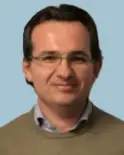 |
Pietro Leandri | ||||||
| Associate Professor for the scientific disciplinary field ICAR/04 (Roads, Railways and Airports) at the Department of Civil and Industrial Engineering, University of Pisa. Research activities carried out mainly in the areas of the topics concerning the study of innovative materials for use in sustainable pavements, modeling of the mechanical response of road superstructure, characterization of mixtures for flexible pavements, study of surface characteristics of road surfaces and effects on vehicle | |||||||
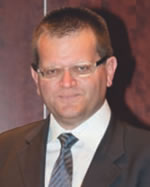 |
Massimo Losa | ||||||
| Associate Professor at the Department of Civil and Industrial Engineering of the University of Pisa. Scientific disciplinary sector: Roads, Railways and Airports ICAR/04 On 12.28.1994 he took up service as a university researcher of the disciplinary group H03X (Roads, railways and airports) at the Faculty of Engineering of the University of Pisa. |
|||||||
 |
Wander effect of connected and autonomous vehicles on pavement performance Authors: Jorge Pais, Paulo Pereira and Liseane Thives |
||||||
|---|---|---|---|---|---|---|---|
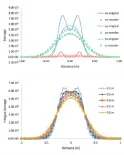 |
Abstract | View Paper | |||||
| Connected and Autonomous Vehicles (CAV) will change how road engineers design road pavements because they can position themselves within a traffic lane, keeping their position in the lane more precisely than human-driven vehicles. These vehicles will have lower lateral wandering, which can induce more damage to pavements, such as cracking and permanent deformation, than the conventional vehicles, with consequences for the infrastructures due to the increased cracking and reduced safety due to the rutting. Thus, it is essential to assess the wander effect on pavement performance to define policies for its implementation on CAV. | |||||||
 |
Jorge Pais, Ph.D. | University of Minho, Portugal | |||||
| Jorge Pais is an Associate Professor of the Department of Civil Engineering at the University of Minho (UM) in Portugal. He received his Ph.D. degree from University of Minho in 1999 with a thesis on reflective cracking in flexible pavements. Before his current position, Dr. Pais worked as research assistant with the pavement research group at the UM. He holds Bachelor (1990) and Master (1993) degrees in Civil Engineering from University of Porto in Portugal. Since 2012 he has been head of the Department of Civil Engineering. | |||||||
 |
Paulo Pereira, Ph.D. | University of Minho, Portugal | |||||
| Professor Paulo Pereira Present Position: Professor and Researcher of Transportation at the Department of Civil Engineering and research centre; Centre for Territory, Environment and Construction, University of Minho. Member of General Council of the University of Minho. Coordinator of the Interdisciplinary Platform UM-Cities of the University of Minho. Director of the research centre Centre for Territory, Environment and Construction (CTAC). Education and Degrees: Aggregation, University of Minho, 1999; PhD in Civil Engineering, 1988, University of Minho; BSc in Civil Engineering, 1980, University of Porto. | |||||||
 |
Liseane Thives, Dr. | University of Minho, Portugal | |||||
| Dr. Liseane Thives has experience in Civil Engineering, focusing on roads, design, construction and transportation. She holds a Doctor degree in Civil Engineering from the University of Minho (Portugal). Her research topics are: transport, road pavements, stormwater harvesting, and waste management. She worked for 18 years on pavement sites. Since 2010 she is an Associate Professor at the Federal University of Santa Catarina, Department of Civil Engineering. She supervises students at the master’s and doctoral level, has more than 40 articles published in indexed journals and more than 100 articles published in conferences. |
|||||||
 |
Lessons learned from the Construction and Initial Performance of a Double Chip Seal wit Paving Mat Pilot Project Authors: DingXin Cheng and Lerose Lane |
||||||
|---|---|---|---|---|---|---|---|
 |
Abstract | View Paper | |||||
| Single chip seals are used by many agencies to maintain or preserve their roadways. While the construction and performance of single chip seals can be easily found from literature, the construction of double chip seals with and without paving fabric or paving mats is still not common. This paper investigates four double chip seal strategies used in a pilot project constructed on US 395 in Inyo County, California, by Caltrans. Within the double chip seal project limits, eight Performance Evaluation Sections (PESs) using four treatment strategies were established for detailed performance monitoring and evaluation: | |||||||
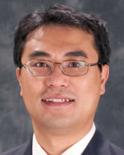 |
DingXin Cheng, Ph.D., P.E. | California State University, Chico | |||||
| Director of California Pavement Preservation Center and Professor of California State University Chico. Professor Cheng is a graduate of Texas A&M University, College Station, Ph.D., Transportation and Pavement Material, 2002. University of Toledo, M.S., Geotechnical Engineering, 1999. Northeastern University, China, M.S., Rock Mechanics, 1994. Northeastern University, China, B.S., Civil Engineering, 1991. Professor Cheng teaches Transportation Engineering, Traffic Engineering, Pavement Design and Pavement Material, Soil Mechnics and Foundations. And developed Software: Two-Way Street Signal Progression Software. | |||||||
 |
Lerose Lane | ||||||
| Education B. S. Civil Engineer, CSU, Chico (1970), UC Davis Ext. (1972-73). Senior Pavement Preservation Engineer, CSU, Chico (2010 to Present), District Materials Engineer, Caltrans, District 2 (1998-2007), Branch Chief, Design R-2, Caltrans, District 2 (1994-1998), Senior Construction Engineer, Caltrans, District 2 (1991-1994), Resident Engineer, Caltrans, District 2 (1989-1991), Engineer, Range C, Design, Caltrans, District 2 (1988-1989), Associate Engineer, Design, Right of Way, Land Development, County of Tehama, Dept. of Public Works (1981-1988), |
|||||||
 |
Mechanical properties of Warm Mix Asphalt (WMA) with several contents of Recycled Concrete Aggregate (RCA) Authors: Julio Cantero-Durango, Rodrigo Polo-Mendoza, Gilberto Martinez-Arguelles and Luis Fuentes |
||||||
|---|---|---|---|---|---|---|---|
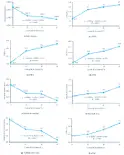 |
Abstract | View Paper | |||||
| Continuous research efforts have been developed in the literature to raise the sustainability components of the road infrastructure industry, i.e., reduce potential contaminants and augment financial profitability. In this regard, this investigation aims to explore the feasibility of producing Hot Mix Asphalt (HMA) with the inclusion of Recycled Concrete Aggregate (RCA) as a partial substitute for coarse Natural Aggregates (NAs). Thus, four different HMAs were considered, namely HMAs with coarse RCA contents of 0, 15, 30, and 45%. Specifically, | |||||||
 |
Julio Cantero-Durango | Universidad del Norte | |||||
| Julio Cantero-Durango is a researcher interested in pavement engineering and construction management. He obtained his bachelor’s and master’s degrees in Civil Engineering at the Universidad del Norte (Barranquilla, Colombia). He is currently a road infrastructure consultant and contractor in the northern region of Colombia. |
|||||||
 |
Rodrigo Polo-Mendoza | ||||||
| Rodrigo Polo-Mendoza he’s a researcher focused on soil mechanics, artificial intelligence, pavement engineering and life cycle assessment. He obtained his bachelor’s and master’s degrees in Civil Engineering at the Universidad del Norte (Barranquilla, Colombia). Currently, he is pursuing his PhD in Applied Geology at Charles University (Prague, Czech Republic). |
|||||||
 |
Gilberto Martinez Arguelles, Ph.D. | Universidad del Norte | |||||
| Dr. Martinez-Arguelles is an Assistant Professor in the Department of Civil and Environmental Engineering at Universidad del Norte (UniNorte), Colombia since 2015, where he has served as the Department Graduate Coordinator. He graduated with a B.Eng (Civil) with a minor in Construction Management from the Universidad del Norte in 2003, M.Sc from Los Andes University in 2005, and obtained his Ph.D in Environmental and Infrastructure Engineering from the Polytechnic University of Milan in 2014. Teaching areas include Construction materials, Asphalt materials, Pavement Design and Rehabilitation, Sustainable infrastructure, undergraduate and post-graduate courses. He is the author or co-author of more than 60 papers in international and national journals and conferences. | |||||||
 |
Luis Fuentes | Universidad del Norte | |||||
| Civil Engineer, Universidad del Norte; Master in Civil Engineering, University of South Florida, PhD in Road Infrastructure Management, University of South Florida. Full-time Professor, member of the TRANVÍA Transportation Research Group and Director of Research and Graduate Studies of the Engineering Division of the Universidad del Norte. Associate member of the World Road Association-PIARC (PIARC World Road Association) 4.1 Management of Road Assets committee for the 2011-2015 cycle. Transportation Research Board (TRB) AFD90 Member of Committee on Surface Properties – Vehicle Interaction for | |||||||
 |
Asset Valuation Model for Highway Rigid Pavements applicable in Public-Private Partnerships Projects Authors: Luis Arce, Rodrigo Delgadillo, Alelí Osorio-Lird, Felipe Araya and Carlos Manuel Wahr Daniel |
||||||
|---|---|---|---|---|---|---|---|
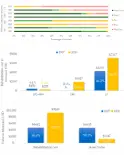 |
Abstract | View Paper | |||||
| Recently, in Chile, infrastructure asset value has been incorporated into highway concession contracts. However, the current valuation model used for rigid pavements is not adapted to the standards and conditions of such projects. This study develops a valuation model for rigid pavements of interurban highway concessions and evaluates it in a case study. The proposed model captures the loss in asset value associated with the performance degradation over time, considering a typical Jointed Plain Concrete Pavement (JCPC) configuration. | |||||||
 |
Luis Arce | Federico Santa Maria Technical University | |||||
| Luis Arce is Civil Engineer and MSc in Civil Engineering from Universidad Técnica Federico Santa María (UTFSM), Chile. His professional experience and research interests revolve around road infrastructure management and highway asset valuation. Since April 2023, he has been working as a technical assistant in the Concessions Directory of the Ministry of Public Works of Chile. From March 2021 to March 2023, he worked as a research assistant on a project called «Highway Asset Valuation Methodology Compatible with the Level of Service to Users,» which was funded by the Fund for the Promotion of Scientific and Technological | |||||||
 |
Rodrigo Delgadillo, Ph.D. | Federico Santa Maria Technical University | |||||
| Civil Engineer from UTFSM. MSc and PhD from the University of Wisconsin – Madison in United States of America (USA). Specialist in road infrastructure. He has been a university professor at UTFSM since 2008. With over 60 publications in specialized journals and conferences, he is recognized as an author and co-author in his field. He is frequently invited to deliver talks and courses on his specialty, both in Chile and internationally. Throughout his career, he has held various important positions. He served as the Director of the Department of Civil Works and Academic Advisor at UTFSM. | |||||||
 |
Aleli Osorio-Lird | D. in Engineering, Pontificia Universidad Católica de Chile. | |||||
| Civil Engineer from the Universidad Nacional de Asunción (UNA), Paraguay. MSc from the Pontificia Universidad Católica de Chile (PUC). PhD from the PUC and the University of Waterloo, Canada. Her specialization lies in road engineering, with a particular focus on materials, design, and pavement management. She has served as a university professor at UNA from 2004 to 2005, at PUC from 2014 to 2017, and at UTFSM since 2018. She has worked as a technical assistant in Paraguay’s Ministry of Public Works and Communications. | |||||||
 |
Felipe Araya | ||||||
| Felipe Araya is Civil Engineer and MSc in Civil Engineering from UTFSM. PhD from The University of Texas at Austin, in the USA. Specialist in construction engineering and management. Since 2014, he has been working as a university professor at UTFSM. With a significant number of publications to his name, he is the author and co-author of more than 30 works published in specialized journals and conferences. Also, he has been invited to deliver talks on his area of specialization within Chile. Currently, he serves as the Head of Career in the Department of Civil Construction at UTFSM. | |||||||
 |
Carlos Manuel Wahr Daniel | ||||||
| Civil Engineer from the University of Chile. He has an extensive career as a professor, having taught for 21 years in the Department of Civil Works at UTFSM. He also holds a position as a member of the board of directors of the Asphalt Committee of the Chilean Chamber of Construction. In addition to his academic role, he serves as the general manager of INGEVIAL SA, where he brings his expertise as a judicial expert specializing in road regulations, road projects, pavement design, and asphalt technology. | |||||||
 |
Deflection-Based Approach For Flexible Pavement Design In Thailand Authors: Auckpath Sawangsuriya, Tunwin Svasdisant and Poranic Jitareekul |
||||||
|---|---|---|---|---|---|---|---|
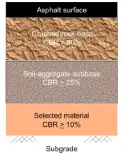 |
Abstract | View Paper | |||||
| The Department of Highways (DOH), Thailand, has adopted both empirical and mechanistic approaches for flexible pavement analysis and design. Recently, the deflection-based design approach has been comprehensively reviewed by the DOH for the possible adoption of national design standards and practices. One of the key reasons is that Thailand’s road authorities, i.e., the DOH and the Department of Rural Roads (DRR), have considered the falling weight deflectometer (FWD) for the new construction and rehabilitation of road pavements. | |||||||
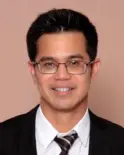 |
Auckpath Sawangsuriya, Ph.D. | ||||||
| Auckpath Sawangsuriya is a civil engineer-expert level at Bureau of Road Research and Development, Department of Highways, Bangkok, Thailand. He received his B.Eng. (with honors) from the Sirindhorn International Institute of Technology, Thammasat University, Thailand. He received his M.S. and Ph.D. from the University of Wisconsin-Madison, U.S.A. His Ph.D. research focuses on the unsaturated soil mechanics for the pavement design and construction. He received the 2005 Norman H. Severson Geotechnical Engineering Award from the Geo Engineering program of the University of Wisconsin-Madison in recognition of his excellent in | |||||||
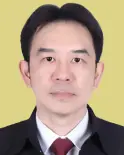 |
Tunwin Svasdisant, Dr. | ||||||
| Dr. Tunwin Svasdisant received his B. Eng in civil engineering from Chulalongkorn University, Thailand in 1996. He then later received his M.E in geotechnical and pavement engineering and his Ph.D. from Michigan State university, USA. He is currently a civil engineer expert level at Bureau of Road Maintenance Management, Department of Highways, Thailand. He has been the lecturer for Pavement Design and Analysis course at various universities in Thailand. His past works includes various researches in the field of Asphalt Technology, Pavement Materials, Pavement Mechanistic Design and Analysis, Pavement Survey and Evaluation, Pavement Maintenance and Pavement Management. | |||||||
 |
Poranic Jitareekul | ||||||
| Poranic Jitareekul is a civil engineer, senior professional level at Bureau of Materials, Analysis and Inspection, Department of Highways, Bangkok, Thailand. He received BEng in Civil Engineering from Kasetsart University in 1997. He received MEngSc in Geotechnical Engineering from the University of New South Wales in 2000 and PhD in Civil Engineering from the University of Nottingham in 2009. His work experiences include pavement analysis and design, geotechnical site investigation, soil improvement, slope stabilization, road construction and highway material quality control. | |||||||
 |
Utilizing Industrial By-products for Sustainable 3-D Printed Infrastructure Applications: A Comprehensive Review Authors: Eka Oktavia Kurniati and Hee-Jeong Kim |
||||||
|---|---|---|---|---|---|---|---|
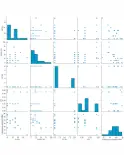 |
Abstract | View Paper | |||||
| Industrial secondary products (e.g., fly ash, blast furnace slag, and silica fume) have found extensive application as alternative construction materials in conventional manufacturing methods to reduce carbon emissions due to cement usage and solve the waste management problem. To date, additive manufacturing or 3D printing has been massively developed for every material, including cement-based materials. Some possibilities have arisen to incorporate industrial wastes in cement mixtures in 3D printing applications. However, a comprehensive study about fly ash (FA), ground granulated blast-furnace slag (GGBFS), | |||||||
 |
Eka Oktavia Kurniati | University of Arizona | |||||
| Eka Oktavia Kurniati is a graduate assistant in the Multiscale Advanced Materials Design Lab, Department of Civil and Architectural Engineering and Mechanics, at the University of Arizona. Her research interest focuses on material design for construction materials, especially research on 3D concrete printing as a sustainable material. |
|||||||
 |
Hee-Jeong Kim, Prof. | University of Arizona | |||||
| Hee-Jeong Kim is an assistant professor in the Department of Civil and Architectural Engineering and Mechanics at the University of Arizona. She received a B.S., M.S., and Ph.D. in civil and environmental engineering, all from the Korea Advanced Institute of Science and Technology (KAIST), and did her postdoctoral research at the Department of Civil and Environmental Engineering, MIT. Her area of expertise is in multi-scale chemo-mechanical characterization of advanced materials in civil engineering. Kim’s research involves designing and developing new construction materials based on advanced multi-scale computational modeling | |||||||
 |
An Infrastructure Management Humanistic Approach for Smart Cities: Development, Evolution, and Sustainability Authors: Carlos M. Chang, Gianine Tejada Salinas, Teresa Salinas Gamero, Stella Schroeder, Mario A. Vélez Canchanya and Syeda Lamiya Mahnaz |
||||||
|---|---|---|---|---|---|---|---|
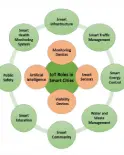 |
Abstract | View Paper | |||||
| Over the next decades, people will continue moving to urban areas all over the world, increasing infrastructure needs to satisfy economic, environmental, and social demands. The connection between civil urban infrastructure and smart cities is strong due to the common goal of fulfilling public service demands. Infrastructure management contributes to the development, evolution, and sustainability of smart cities. The main problem with traditional approaches to the development, evolution, and sustainability of smart cities is the lack of a holistic, integrated vision of infrastructure management. | |||||||
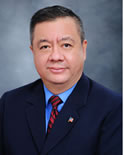 |
Carlos M. Chang, Ph.D. P.E. | Florida International University | |||||
| Dr. Chang is an Associate Professor in the Department of Civil and Environmental Engineering at Florida International University (FIU). He is recognized as an international expert on asset management, infrastructure management, knowledge management, pavement management, pavement evaluation, and design. His main research interest is in asset management, with an emphasis on sustainable «smart» infrastructure systems for a better quality of life. His research work involves the development of advanced decision-making models, methodologies, and tools to apply multi-decision criteria, statistical analysis, simulation processes, | |||||||
 |
Gianine Tejada Salinas |
||||||
| Master in Administration from Universidad del Pacífico and industrial engineer from Universidad Ricardo Palma. Currently, she is an advisor to the Executive Direction of FONDECYT. She is a specialist in conducting, guiding and coordinating planning processes, formulation, programming, monitoring and evaluation of plans and activities of both productive and service companies in the private and public sector. |
|||||||
 |
Teresa Salinas Gamero | ||||||
| Master in Education Administration from Universidad de Lima (Summa Cum Laude), Bachelor in Education Sciences, Bachelor in Physical Education-Mathematics from Universidad Nacional de San Agustín de Arequipa (Peru). Professor of Physics at the Ricardo Palma University URP in the Faculty of Engineering (Peru), postgraduate courses at the National University of Distance Education UNED, Madrid, visiting professor at the University of Alcalá de Henares and the University of Barcelona (Spain). Fellow of the Spanish Agency for International Cooperation (AECI); postgraduate courses at the Center for Improvement of Higher Education of the University of Havana, Cuba. | |||||||
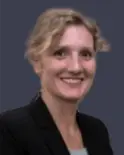 |
Stella Schroeder | ||||||
| Stella Schroeder is geographer with a focus on cities from the University of Bremen, Germany, and Master of Science in Urban Development and Urban Design from the HafenCity Universität in Hamburg, Germany. Currently a PhD candidate in Urbanism at the University of Bío-Bío in Concepción, Chile. Professor and director of the Institute of Urbanism and Territory at the University of Piura, Peru. Local coordinator of the «mgi global Smart Cities Initiative» in Piura and researcher «Dynamics of innovation ecosystems Piura». | |||||||
 |
Mario Velez C., Ing., Mg. | Project Management Profesional PMP | |||||
| Mario Velez es ingeniero civil CIP, graduado en la Universidad Nacional de Ingeniería (UNI), con estudios de postgrado en el Building Research Institute – Ministry of Construction of Japan – BRI y participante en programa para ejecutivos seniors en el IESE Business School de la Universidad de Navarra, realizado en New York y Miami. Especializado en Gerencia de Proyectos, certificado como Project Management Professional – (PMP) ® otorgado por el Project Management Institute – PMI. Egresado (titulación en trámite ) del master internacional BIM Manager en ZIGURAT Global Institute of Technology y la Universidad de Barcelona. Experiencia de 26 años en la gestión de proyectos de construcción de infraestructura. |
|||||||
 |
Syeda Lamiya Mahnaz | ||||||
| Syeda Lamiya Mahnaz is research assistant at the Department of Civil and Environmental Engineering in Florida International University. |
|||||||
